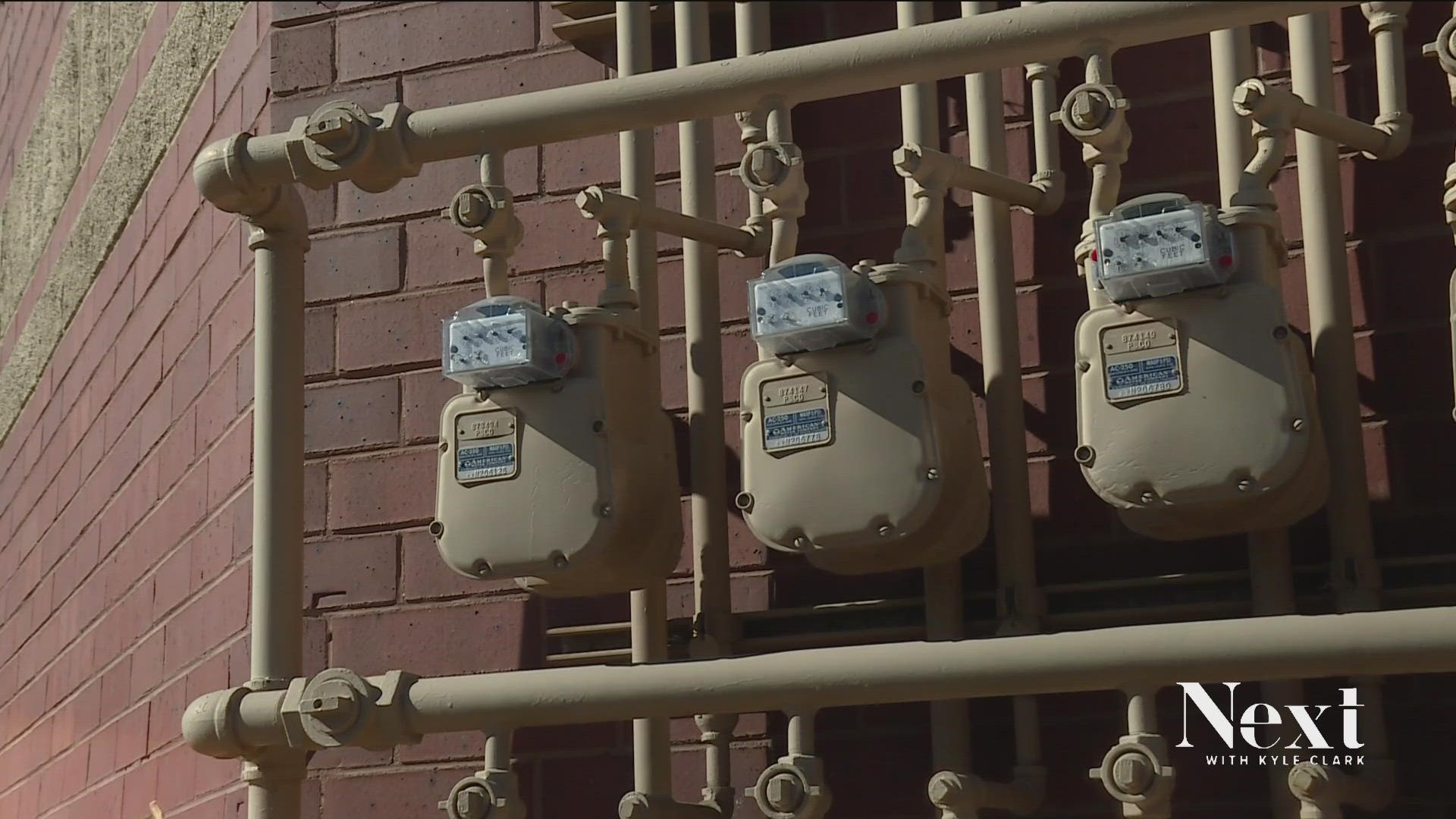DENVER — Three weeks of educating on utility bills has the attention of state lawmakers.
The top Democrat in the Senate hinted at legislation coming to review how much profit a utility is allowed to make off its customers, and what that can include.
Like the $2 million dollars Xcel Energy is getting back from customers for the lawyers it hired to increase customer bills.
When we explained what the Office of Utility Consumer Advocate (UCA) was – our public defender in front of the Public Utilities Commission (PUC) in utility rate issues – we also revealed that Xcel asked for $2.2 million in reimbursement for outside legal help it hired in order to argue for the rate increase. The PUC approved $2 million.
Phil in Littleton emailed NEXT and wanted to know: “Why do we pay for Xcel lawyers?”
The short answer is that costs that the PUC approves for ratepayers to pay Xcel must be “just” and “reasonable.”
Xcel provided the following statement defending why it seeks reimbursement for the legal team it hires to seek an increase to customer bills.
“Unlike other businesses, as a highly-regulated energy company, our customers’ rates are based on the cost of providing our service, and we cannot change them without a required legal process. The fees we incur in connection with those large cases, whether for outside counsel or technical expert consultants, are part of our costs of service and are in addition to our internal resources. These are costs regulators have approved in rates in all our jurisdictions and doing so is a standard practice across the country for all utilities.
Lobbying expenses are not recovered from customers.
The entire process is transparent. Everything we do is subject to oversight by the Colorado Public Utilities Commission and the public – customers and stakeholders – have a say in it. As always, we welcome the public engagement.”
“Personally, I don’t think it’s appropriate for ratepayers to pay the utilities lawyers to increase their rates. If they want to make the claim that they need rate increases to recover costs, I think that’s fine, but that should probably come out of the company’s bottom line from shareholders,” said Senate President Steve Fenberg, D-Boulder.
Fenberg hinted that new legislation could be on the way to address complaints from customers and issues exposed on NEXT.
“The education you’ve been doing is invaluable,” Fenberg said. “We need to have legislative action on making sure that the investments that occur are in the public interest. We need to ask ourselves if the rate of return that utilities make off of those investments is still the appropriate rate. And we need to think about if costs are due to things outside of a consumers control, like which fuels the utility decides to use for their power generation. What can we do, as a legislature, to put guardrails around that, to protect the pocketbooks of regular people.”
Regarding the $2 million in legal fees, the UCA has sued in Denver District Court to get a judge to rule that the expenses approved by the PUC were not justified.
However, that lawsuit also revealed that the UCA is not against legal fees being reimbursed by customers as long as they come with proper receipts.
Here is a footnote from the lawsuit:
“By this Petition, UCA is not challenging Public Service’s right to recover rate case expenses, including attorneys’ fees, in a rate case when those expenses are properly supported by evidence that demonstrates their reasonableness. Rather, UCA is challenging the Commission’s decision to award Public Service its attorneys’ fees where, as here, insufficient evidence is presented by the Company to enable the parties and the Commission to evaluate the reasonableness of the fees.”
“The regulator [PUC] is doing what the law tells them to do. The utility [Xcel] is doing what the law allows them to do. Meanwhile, we in the legislature, has the ability to change those laws and change those procedures,” Fenberg said. “We need to do better about making sure that when they do make money, when they do make a profit, that it’s fair and it’s done only because they earned it. Not because they just simply invested money and, therefore, they always will get a certain rate of return back.”
The $2 million reimbursement was part of the $64 million gas base rate that the PUC approved for Xcel to take effect in November.
That rate increase was supposed to increase an average residential customer bill $2.09 a month, and an average small business customer bill $12.95 a month.
Those base rates include reimbursement for expenses incurred by Xcel, plus a profit.
“Should a utility like Xcel get a return if they’re building a solar farm or a wind farm? Yes, of course. They’re not going to do it out of the goodness of their heart,” Fenberg said. “We need to make sure those are reasonable investments, that they’re making those investments because they’re necessary not because they just want to build more things to get more money.”
SUGGESTED VIDEOS: Your Xcel bills

